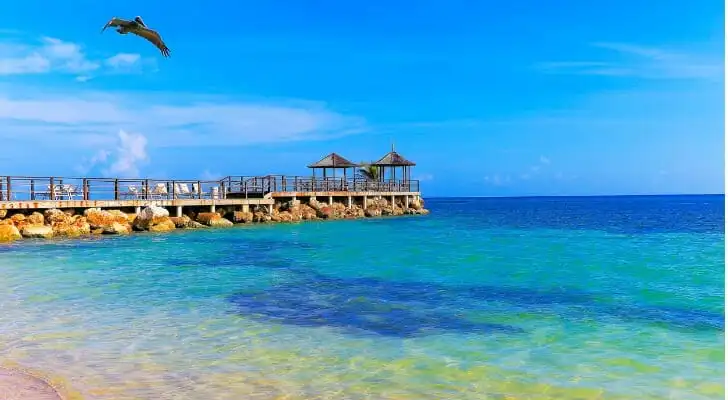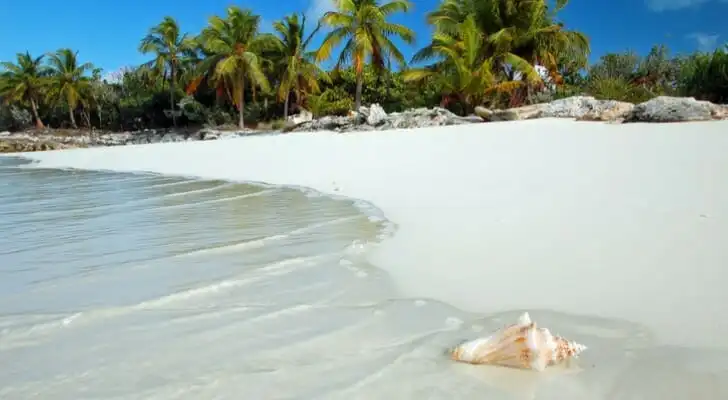Jamaica has long attracted people looking to enjoy retirement on or near sandy beaches, warm water, lush greenery and excellent weather. Besides this, the island nation is the birthplace of reggae music – think Bob Marley and Jimmy Cliff – and just a short flight back to the United States. On the other hand, Jamaica lacks many of the amenities and resources of a more developed country like the U.S., Spain or Switzerland. If you have your heart set on a Caribbean retirement, here’s what you need to know. Consider working with a financial advisor as you explore places to retire.
Average Cost to Retire in Jamaica
The cost of living in Jamaica is one of the biggest reasons that it’s a popular spot for retirees. In most cases, you should be able to retire comfortably in Jamaica for far less than in the U.S. In fact, the cost of living in Jamaica is around 22% lower than in the U.S., according to the pricing data website Numbeo.
This is due in large part to the affordable real estate prices. While you can certainly find multi-million dollar homes in some parts of Jamaica (for example, Montego Bay), property on the whole is much cheaper than in the U.S.
If you’re looking to live on the coast, houses in port towns like Ocho Rios or Port Antonio are typically less than $200 per square foot. If you’d prefer to live in the city, a one-bedroom apartment in the center of Kingston will cost around $900 per month, according to Numbeo. On average, renting in Jamaica will cost between $190 and $1,200 per month.
The only things that are more expensive in Jamaica are perishable items that need to be imported, like milk. According to Numbeo, a gallon of milk would cost around $12.87 in Jamaica (although you’ll usually buy it by the liter). Factoring in food, transportation, utilities and recreation, you can live reasonably in Jamaica on a monthly budget of around $913 (not including rent).
Healthcare in Jamaica
Jamaica has a public healthcare system that is free to all residents of the island. Clinics exist in each parish on the island, and they range in size and sophistication. However, public hospitals are routinely overcrowded, leading to notoriously long wait times. This is largely due to violence-related injuries.
There is at least one hospital in every parish in Jamaica, but the largest and best-equipped facilities are in Kingston and Montego Bay. Even in these largest cities, though, serious medical conditions often require evacuation to facilities in the U.S.
You will most likely want to visit the private facilities in Kingston or Montego Bay for your own care. Although services aren’t free like the public facilities, the quality of care will be significantly higher.
Before you leave the states, consider purchasing an international healthcare insurance plan. This will cover you for medical expenses in both Jamaica and the U.S. if you require evacuation. The cost of these plans can vary widely depending on your age, how comprehensive your coverage is and if you exclude any countries. It can be as cheap as $3,000 and as expensive as $40,000 a year.
Visas for Retirees in Jamaica

As an American, you can stay in Jamaica for up to six months without a visa. To stay longer, you’ll need to apply for residency status. As part of your application, you’ll need your passport, evidence that you can financially support yourself without working and a completed application form, which you can find at the Jamaican consulate.
If you prefer, you can apply for residency through the Jamaican consulate while still in the U.S. This is often the safer option: While many Americans obtain permits for retirement, approval is not guaranteed. Don’t move your entire life to Jamaica (or any other country) without being confident that you’ll be able to stay permanently!
Safety in Jamaica
One of the biggest drawbacks to Jamaica as a retirement destination is the troubling crime rate. The U.S. State Department issued a travel advisory in July 2024 warning U.S. citizens to reconsider traveling to Jamaica, citing violent crime, including armed robberies and sexual assaults, as well as “lower levels of emergency service response times or routine care for illness or injury.”
Taxes for Retirees in Jamaica

If you live in Jamaica, you are considered a resident for tax purposes if any of the following apply: you spend at least six months in the country a year; you have a home in Jamaica and visit Jamaica any time in a year; or you visit Jamaica at least three months over year for four consecutive years.
As long as you retain your U.S. citizenship, odds are you’ll have to pay taxes in both Jamaica and the U.S. The two countries have an agreement to protect against double taxation. However, you will still have to file both returns each year.
If you’re a resident of Jamaica, your statutory income above 1,700,088 Jamaica dollars ($10,772.64 as of February 2025) will be taxed at 25%. Generally, statutory income is income that hasn’t already been subject to withholding by a Jamaican employer. Any income above 6 million Jamaica dollars ($38,019 as of February 2025) will be taxed at 30%. For tax purposes, you are a resident if you have spent more than 183 days of a tax year in the country.
There are some exceptions to this, thanks to the tax treaty between the U.S. and Jamaica.
First, your income from Social Security won’t be taxed by the Jamaican government. It may still be taxed by the U.S., though. Second, if you have a pension from employment in the U.S., that will be subject to U.S. taxation but not Jamaican taxation.
Other Possible Retirement Sites in the Caribbean
There are 26 distinct countries or territories in the Caribbean, and each one has unique visa restrictions. Here are three possibilities.
To get a retirement visa in the Bahamas, there are a couple of options. The first is to purchase a property in the Bahamas worth over half a million U.S. dollars, then apply for permanent residency. The second option is to purchase a property in the Bahamas then apply for an Annual Homeowner’s Card. This will allow you and your family to stay in the country throughout the year. The annual fee for this card is $500.
In Belize, retirees must be 45 years old to apply for the Belize Retired Person’s Incentive Program (QRP). QRP’s must move $2,000 per month into a Belizean bank account, have proof of a pension or Social Security, and have adequate funds to stay in the country.
The Dominican Republic offers a special Pensionado Visa for retired people that provides tax benefits, provided they have an income of $1,500 per month. That income can come from a private or government pension, such as Social Security. Upon approval, applicants get permanent residency status. Expect the application process to take one to two months.
Bottom Line
If you’re looking to spend your third act abroad, Jamaica has a lot to offer. Your money will travel farther so long as you shop smart and local. You’ll also need to make some decisions about health care and insurance. While it may not be the most economically developed country, Jamaica’s gorgeous views and balmy breezes could be just right for you.
Tips on Saving for Retirement
- A financial advisor can be a big help in building a comprehensive retirement plan. Finding a financial advisor doesn’t have to be hard. SmartAsset’s free tool matches you with vetted financial advisors who serve your area, and you can have a free introductory call with your advisor matches to decide which one you feel is right for you. If you’re ready to find an advisor who can help you achieve your financial goals, get started now.
- It’s tough to plan for your retirement if you aren’t sure what kind of costs you’ll have when you retire. To get an idea of what to expect, stop by our retirement calculator. To use this, you’ll need a few details about where you want to retire, when you want to retire and how much you have in savings.
- Saving for retirement can take many forms. To supplement your income from Social Security, you could open an IRA or participate in a 401(k) plan through your employer. Whatever your choice, starting sooner rather than later can give you a better chance to earn compound interest.
- When discussing retirement preparation, it’s critical that you leave your savings untouched. If you withdraw from your 401(k) early, you’ll lose out once in tax penalties and again in lost interest. An emergency fund can be a good alternative if you need some extra cash.
Photo credit: ©iStock.com/Wildroze, ©iStock.com/Cecilie_Arcurs, ©iStock.com/agustavop
